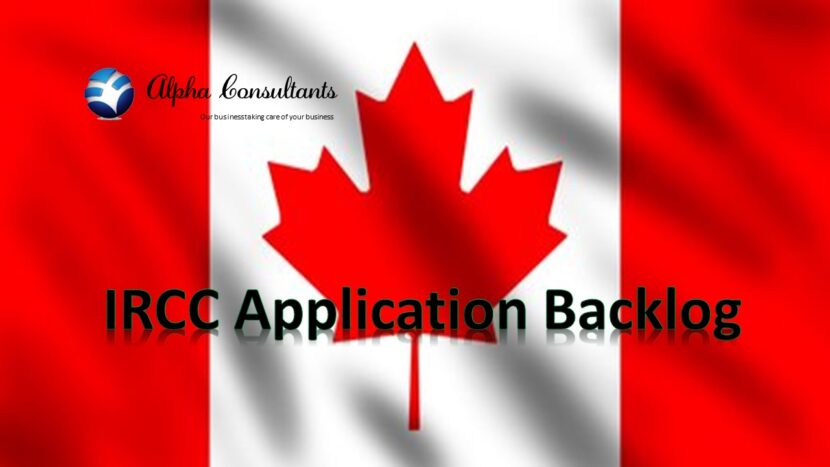IRCC Application Backlog Slowly Shrinking Despite Higher Number Of Applications
The most recent data from Immigration Refugees and Citizenship Canada (IRCC) shows a backlog of 802,600 applications out of a total 2,274,600 as of July 31.
Compared to the last update on May 31, the numbers indicate that the backlog is shrinking. In May, there were 820,000 applications considered backlogged out of 2,248,000. This is notable because the summer months typically see an increase in applications, particularly for study permits, work permits and temporary resident (visitor) visas.
IRCC defines applications in inventory as applications that have been submitted to the department that have not yet been finalized. If an application is not processed and finalized within service standards, it is then considered in backlog.
Service standards are the average length of time that IRCC will take to process an application. It can vary depending on the type of application. For example, an Express Entry application for permanent residence should be processed within six months while a study permit should be processed within 60 days.
IRCC aims to process 80% of all applications within service standards and keep the backlog at 20% or less.
In 2022, IRCC finalized over 5.2 million applications across all lines of business.
Permanent residence
The most recent data shows IRCC has 631,500 permanent resident (PR) applications in inventory. Of these, 290,500, or 46%, are considered in the backlog.
The total number of applications shows there are fewer PR applications in inventory than there were in May, which showed 640,000 applications. At that time, 48% had not been processed within service standards.
IRCC breaks down its backlog projections for PR applications into three categories.
The first is for Federal High Skilled Workers, such as those who are in an Express Entry program. IRCC projected a backlog of 20% for July 2023 but the backlog stands at 16%. However, this is slightly higher than the 15% backlog of PR applications seen in May 2023.
There has been no change to the backlog of Express Entry applications for candidates in the Provincial Nominee Program (PNP). As with the May 31 data, 30% of these applications are in backlog, which is 8% higher than the projections and 10% over the targeted 20%.
The backlog of PR applications for spouses, partners and children is at 18%, lower than the projected 24% and 2% lower than it was in May.
Citizenship
Citizenship application data shows that of the 296,900 applications in inventory, 67,900, or 23%, are in backlog. This is a drop of 4% from May when 27% of applications were considered backlog.
The July data is nearly in line with the IRCC projection of a 24% backlog for citizenship applications. It is expected that the backlog will increase to 26% throughout August and September.
Temporary residence
There are 902,000 applications in inventory for temporary residence visas and permits. This is significantly lower than the 1.3 million applications in May.
Like permanent residence, applications for temporary residence permits are separated into three categories: study, work and visitors, visas
The IRCC data shows that at the end of July, 47% of temporary residence visas (TRVs) were not being processed within the 14-day service standard. This is a slight increase over the May data that showed 45% of visitor visas were not processed within service standards.
There has been no change between the May and July backlog percentage for study permits. It continues to sit at 17%, lower than the targeted 20%.
The backlog of work permit applications in July sat at 25%, slightly lower than May’s 27% but higher than the projected backlog of 22%.
Measures to reduce the backlog
IRCC says it has taken several measures this year to reduce the backlog of temporary residence applications such as
- Launching an online portal that allows some permanent residence applicants to apply online
- Extending work permits for those with expiring post-graduate work permits,
- Increasing the length of stay for parents and grandparents in Canada on a Super Visa to five years with the option of a two-year extension,
- Expanding the student direct stream to include seven additional countries and
- Extending the eligibility of work permits to family members of temporary foreign workers.
CUAET
IRCC notes that approximately 15% of temporary resident visa (visitor visa) applications and 71% of work permits applications in inventory are from the Canada-Ukraine Authorization for Emergency Travel (CUAET).
IRCC received 1,191,619 applications through CUAET before the program stopped accepting applications on July 15. Under CUAET, applicants would apply for a TRV to enter Canada but could also apply for a work permit at the same time.

